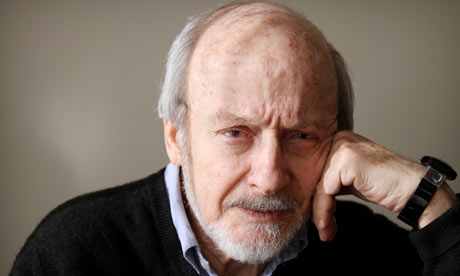INTERVIEWER
Would you comment on that legendary
Hollywood experience you were involved in?
FAULKNER
I had just completed a contract at
MGM and was about to return home. The director I had worked with said, “If you
would like another job here, just let me know and I will speak to the studio
about a new contract.” I thanked him and came home. About six months later I
wired my director friend that I would like another job. Shortly after that I
received a letter from my Hollywood agent enclosing my first week's paycheck. I
was surprised because I had expected first to get an official notice or recall
and a contract from the studio. I thought to myself, the contract is delayed
and will arrive in the next mail. Instead, a week later I got another letter
from the agent, enclosing my second week's paycheck. That began in November
1932 and continued until May 1933. Then I received a telegram from the studio.
It said: “William Faulkner, Oxford, Miss. Where are you? MGM Studio.”
I wrote out a telegram: “MGM
Studio, Culver City, California. William Faulkner.”
The young lady operator said,
“Where is the message, Mr. Faulkner?” I said, “That's it.” She said, “The rule
book says that I can't send it without a message, you have to say something.”
So we went through her samples and selected I forget which one—one of the canned
anniversary-greeting messages. I sent that. Next was a long-distance telephone
call from the studio directing me to get on the first airplane, go to New
Orleans, and report to Director Browning. I could have got on a train in Oxford
and been in New Orleans eight hours later. But I obeyed the studio and went to
Memphis, where an airplane did occasionally go to New Orleans. Three days
later, one did.
I arrived at Mr. Browning's hotel
about six p.m. and reported to him. A party was going on. He told me to get a
good night's sleep and be ready for an early start in the morning. I asked him
about the story. He said, “Oh, yes. Go to room so-and-so. That's the continuity
writer. He'll tell you what the story is.”
I went to the room as directed. The
continuity writer was sitting in there alone. I told him who I was and asked
him about the story. He said, “When you have written the dialogue I'll let you
see the story.” I went back to Browning's room and told him what had happened.
“Go back,” he said, “and tell that so-and-so—. Never mind, you get a good
night's sleep so we can get an early start in the morning.”
So the next morning in a very smart
rented launch all of us except the continuity writer sailed down to Grand Isle,
about a hundred miles away, where the picture was to be shot, reaching there
just in time to eat lunch and have time to run the hundred miles back to New
Orleans before dark.
That went on for three weeks. Now
and then I would worry a little about the story, but Browning always said,
“Stop worrying. Get a good night's sleep so we can get an early start tomorrow
morning.”
One evening on our return I had
barely entered my room when the telephone rang. It was Browning. He told me to
come to his room at once. I did so. He had a telegram. It said: “Faulkner is
fired. MGM Studio.” “Don't worry,” Browning said. “I'll call that so-and-so up
this minute and not only make him put you back on the payroll but send you a
written apology.” There was a knock on the door. It was a page with another
telegram. This one said: “Browning is fired. MGM Studio.” So I came back home.
I presume Browning went somewhere too. I imagine that continuity writer is
still sitting in a room somewhere with his weekly salary check clutched tightly
in his hand. They never did finish the film. But they did build a shrimp
village—a long platform on piles in the water with sheds built on it—something
like a wharf. The studio could have bought dozens of them for forty or fifty
dollars apiece. Instead, they built one of their own, a false one. That is, a
platform with a single wall on it, so that when you opened the door and stepped
through it, you stepped right off onto the ocean itself. As they built it, on
the first day, the Cajun fisherman paddled up in his narrow, tricky pirogue
made out of a hollow log. He would sit in it all day long in the broiling sun
watching the strange white folks building this strange imitation platform. The
next day he was back in the pirogue with his whole family, his wife nursing the
baby, the other children, and the mother-in-law, all to sit all that day in the
broiling sun to watch this foolish and incomprehensible activity. I was in New
Orleans two or three years later and heard that the Cajun people were still
coming in for miles to look at that imitation shrimp platform which a lot of
white people had rushed in and built and then abandoned.





.bmp)
.bmp)

















.bmp)

.bmp)